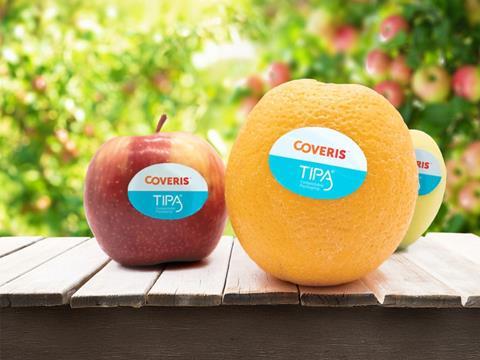
Coveris and TIPA Compostable Packaging have entered an exclusive agreement to manufacture and market compostable labels for fresh produce in the UK, in response to increasing market demand and tightening regulatory requirements for the compostability of produce stickers.
This partnership combines TIPA’s recently announced home compostable labels - said to demonstrate high elasticity and excellent resistance to moisture - with Coveris’ production capabilities and market knowledge, apparently validating the applicability of the stickers for a wide range of fruits and vegetables.
Following extensive testing of available market options, Coveris selected TIPA’s home-compostable label material for its ‘superior’ performance and applicability across a wide range of fruits and vegetables. TIPA says its new film offers moisture resistance while remaining flexible, allowing the stickers to securely adhere to produce that often has wet or varied surfaces.
The companies state this durability enables consistent application across items such as apples, citrus fruits, kiwis and avocados without compromising compostability. The collaboration aims to deliver a scalable, sustainable solution for retailers, packers, and growers seeking to meet both consumer demand and regulatory requirements.
TIPA launched its ‘certified home compostable’ label earlier this month with its European subsidiary Bio4Pack. According to TIPA, the labels are compatible with conventional label printing presses, suitable for machine and hand application techniques and are certified as food-safe for direct food application.
In related news, in July Makro and VML announced they had applied stickers to fresh produce with visual indicators of the product’s ripeness and serving suggestions for each stage, intended to tackle unnecessary food waste. The colours on the sticker correspond with the fruit or vegetable’s ripening process, such as the sticker for bananas which displays a colour gradient from green to black with each one matched to foods like ice cream, tempura, and cupcakes.
If you liked this story, you might also enjoy:
The ultimate guide to the Packaging and Packaging Waste Regulation in 2025
How are the top brands progressing on packaging sustainability?
Everything you need to know about global packaging sustainability regulation in 2025
The key to increasing the use of reusable packaging in supermarkets














No comments yet